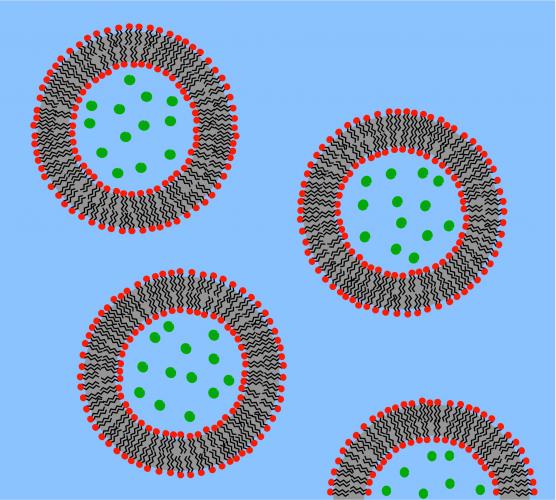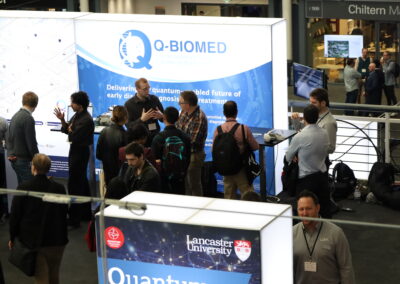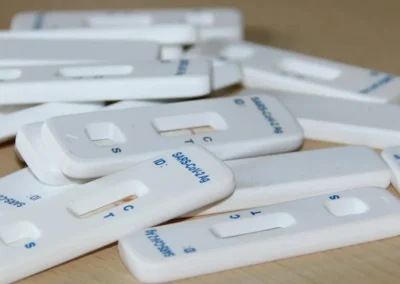Scientists from the LCN have engineered a novel nanoscale drug delivery vehicle which can be tuned to release a range of cargos. The drug delivery system consists of self-assembled DNA nanopores embedded in nanometre-sized ‘bubbles’ known as polymersomes. Polymersomes are biocompatible and stable making them ideal for the development of drug delivery systems.
The DNA nanopores, spanning across the ‘bubble’ walls, allow the cargo to be delivered. The diameter of the nanopore can be varied to allow for cargo of various sizes to be selectively distributed, meaning that this type of nanocontainer could be used to deliver sensitive drug delivery cargos such as antimicrobial enzymes.
Controlling the diameter of the DNA nanopores is a crucial step in engineering the release of cargo from the nanocontainer. Dr Alice Pyne, a research fellow at the LCN, determined the DNA nanopore dimensions using high resolution atomic force microscopy (AFM). AFM can be performed in liquid, enabling investigation of the DNA nanopore dimensions in a native-like environment. High resolution scans allowed for the determination of both the length and width of the DNA nanopores, confirming that they were within the predicted scale of 9×5 nanometres, and validating their design for biomedical applications.

Figure: (Left) A schematic of the nanocontainer drug delivery system showing the polymersome ‘bubble’ (grey and purple) with DNA nanopores (blue) embedded within it; (Centre) Schematics of the self-assembled DNA nanopores; (Right) An AFM image of the DNA nanopores, a single pore is highlighted by the grey box
Link to original article in Angewandte Chemie: Biomimetic Hybrid Nanocontainers with Selective Permeability



